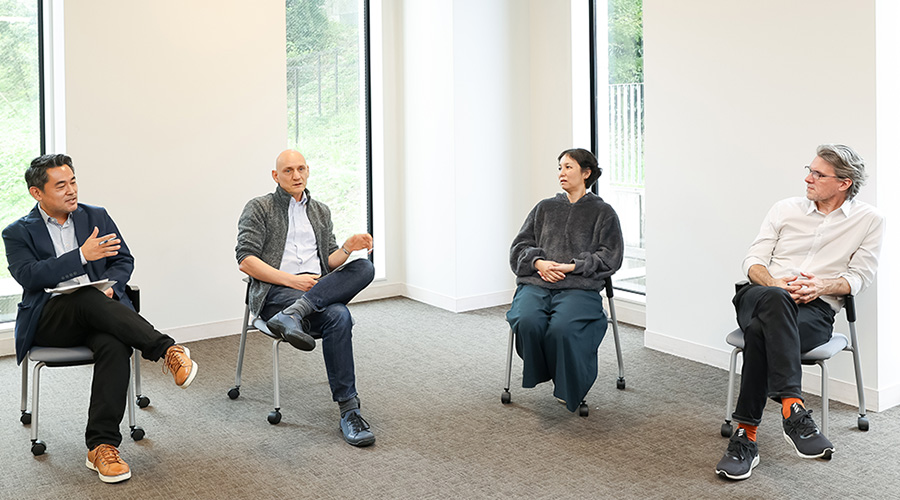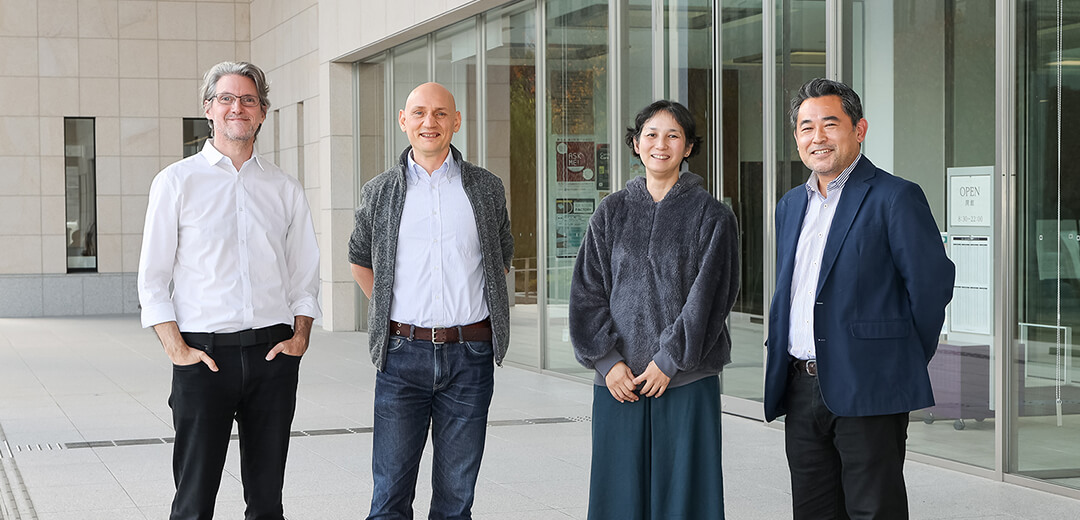
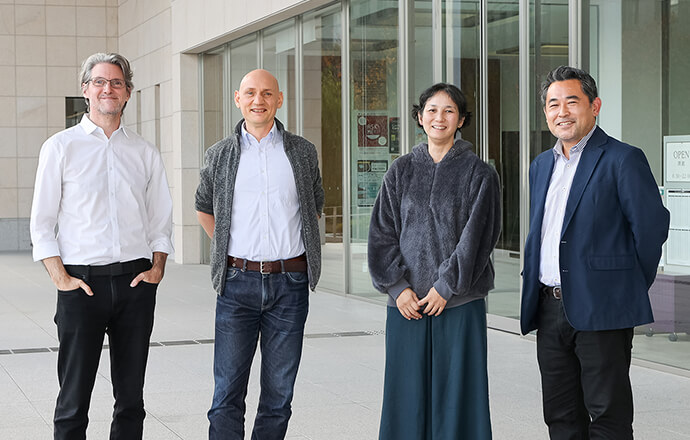
Talk01Our Faculty Members Discuss the Ten Years of the Global Studies Major
The Global Studies Major, which allows students to learn about different people, sensibilities, and ways of looking at things, began as an effort to coordinate the different educational systems in Japan and overseas.
PROFILE
-
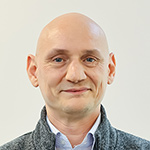
Professor Zsombor Tibor Rajkai
PhD, Graduate School of Letters, Kyoto University.
Previous position: 2010-2011: Associate Professor, Faculty of Letters, Kyoto University.
Areas of expertise: Sociocultural studies, modernization of non-Western cultures, family studies, and the history of China and Central Asia. -
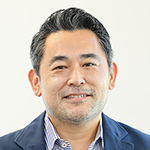
Associate Professor Hiroaki Ataka
PhD in Politics and International Studies, University of Warwick (UK).
Previous position: 2010-2011: Part-time lecturer, Department of Politics and International Studies, University of Warwick (UK).
Areas of expertise: Critical international relations theory, international political economy. -
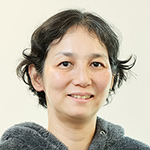
Associate Professor Sayaka Fukumi
M.A., University of Birmingham (UK); Ph.D., University of Nottingham (UK).
Previous position: 2008-2014: Faculty of International Relations, Asia University.
Areas of expertise: International relations, security studies. -
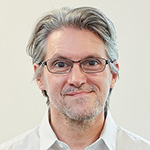
Associate Professor Scott Koga-Browes
M.A., Sheffield Hallam University (UK). PhD, University of Sheffield (UK)
Previous positions: Reuters PLC, Tokyo Broadcasting Systems (TBS)
Areas of expertise: Media theory, visual semiotic analysis of TV news images
Why was the Global Studies Major (GS) founded? Faculty members who have been involved with GS since its inception or from the very early days gathered to discuss the past 10 years of GS, including their memories and individual thoughts, as well as the future of the major.
Differences between university education in Japan and overseas that you realized when GS opened
Tell us about your impressions of GS when it was established and any anecdotes you have.
-

Ataka I think GS was started with the mission of taking internationalization to the next level. The number of participants in study abroad programs had been increasing throughout the university, so we wanted to take the next step and raise the level of internationalization for the entire university and the college as a whole.
-

Rajkai GS started with the G30 Program (*1). I had already been involved in the 21st Century COE Program (*2) and the G30 Program at other universities before that, so I was happy when I heard that the GS Major would be established in the College of International Relations.
-

Ataka There was some anxiety, however. I wondered if an English-only major was really possible. I thought it might be possible if it were a graduate school with a small number of students, but I felt that it would be quite difficult to achieve at the undergraduate level with a large number of students.
-

Fukumi When I was hired at GS, I was already used to teaching in English. I had been away from Japan for about 9 years, so I didn't know much about the state of university education in Japan.
-

Koga-Browes I found out that GS was going to be opened the year I finished my PhD abroad, so I thought it would be a good chance for me to work in Japan.
-

Ataka The toughest challenge was trying to suddenly incorporate a foreign framework into the Japanese educational system. That was difficult, and there were many gaps. The basic premise of a Japanese university is different from that of a foreign university. For example, in Japan, students take courses in a tightly packed schedule based on in-class learning, with each student registering and taking 10 courses per week. This made it quite difficult to ask students to thoroughly prepare for classes and review the material afterward as is the practice overseas. However, when GS was first established, each of us was teaching at a university overseas, so we all brought that same sense of doing things to GS, and this had a major impact. We thought that students would naturally read a certain amount of material before each class, and all the instructors would give assignments that would be considered normal in other countries, so the students were overwhelmed by the amount of homework. So, the GS instructors had to ask each other how they were teaching their classes and make adjustments. It was hard work, but it was also very interesting.
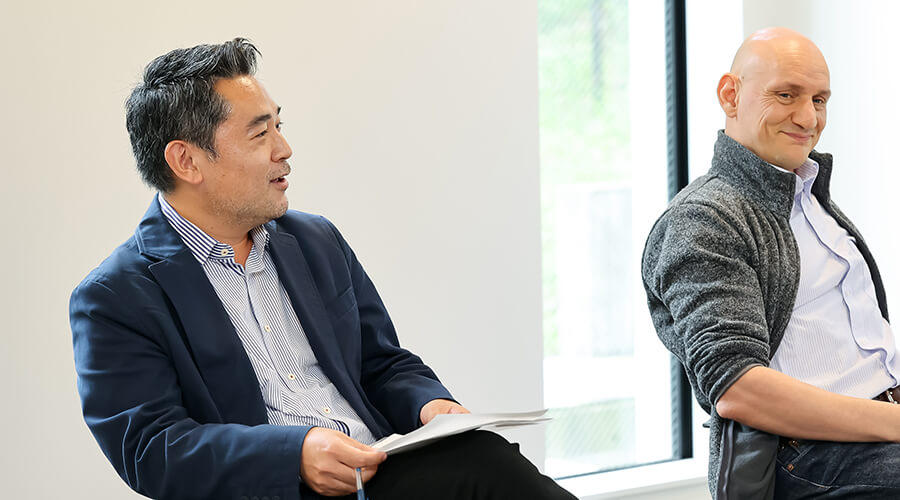
-

Fukumi In the UK, there is one seminar for every course, so lectures and practical work are combined into one set, so students actually take between six and eight courses in a week. In terms of the amount of homework per course, there were 20-page reading assignments, preparation for presentations, essays, and so on. If I were to give the same amount of homework at a Japanese university where students take 10 courses in a week, I would be in trouble. (laughs) Not only would students not get any sleep, they would not be able to do anything else.
-

Ataka At first, we didn't understand these gaps. Each instructor was only looking at their own class.
-

Koga-Browes I didn't know what the commonly accepted practices in university education in Japan were, so I thought that the work I expected the students to do for my classes was par for the course. But as time went by, I noticed that none of the students did their assignments, so I thought something must be wrong. (laughs) I realized that I couldn’t assign homework in the same way that I did overseas because the number of courses that students take in a week is completely different.
*1: Global 30 (G30) Program: A program implemented by the Ministry of Education, Culture, Sports, Science and Technology to promote the formation of networks for the internationalization of universities.
*2: 21st Century Center of Excellence (COE) Program: A program implemented by the Ministry of Education, Culture, Sports, Science and Technology to provide focused support for the formation of world-class research and education centers.
Expanding your horizons in a multinational environment
Tell us what you think are the attractive features and good points of GS.
-

Fukumi One good point is the multinational student body. When there are only Japanese people in a group, they typically tend to think in the same way and often fail to come up with interesting answers. When we talk about countries other than Japan, we tend to talk about them without knowing about the people from those countries. For example, we tend to view African countries as "pitiful countries" based on our own assumptions. However, people from different places have different perspectives. For example, in Europe, people from the UK and Hungary have completely different ways of seeing things, and people who grew up in the US have completely different views from people who were educated in the UK. Even if you are the same nationality as someone else, your backgrounds may be quite different depending on where you grew up. I teach the exact same classes in the International Relations Major and GS, but the responses I get from my students are different. GS is very rich in terms of diversity, learning, and insight. There are times when students teach us things about their own countries that we don't know, so the students become like teachers.
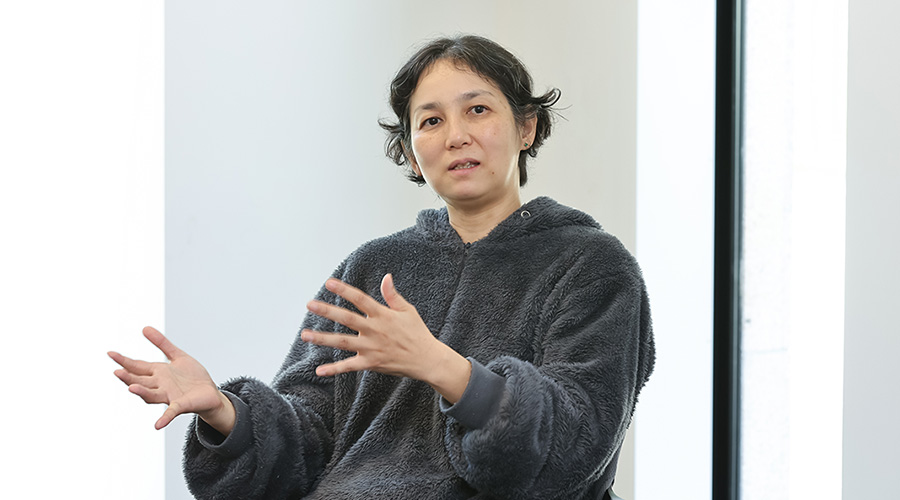
-

Rajkai Yes, it is also a learning experience for us.
-

Fukumi Meanwhile, some international students told me that their parents let them study in Japan because it is a safe country. From the standpoint of the parents, Japan seems to be the safest option when compared to other countries like the US and the UK. On the other hand, students from Asia come to Japan because it is close and doesn’t cost as much.
-

Rajkai I think the international students who come to GS do so because, first and foremost, they are interested in Japanese culture. It is also very attractive because it is located in Kyoto. Kyoto is a very interesting city. It is striving to modernize while also valuing its traditional aspects.
-

Ataka Another thing the students often tell me is that GS is interesting because there are many classes to choose from.
-

Koga-Browes GS has 10 years of history, the university provides thorough support in English, and the programs have been developed with an eye on the future five and 10 years down the road. I think these are all good points.
-

Fukumi The university has worked very hard to achieve this. In terms of faculty hiring, GS generally hires people who can teach in both Japanese and English with the aim of enriching the courses offered by the major. Over the past 10 years, the major has been implementing this policy gradually. Some faculty who only planned to teach in Japanese are now able to teach in English as well, so at this point, most of our colleagues can teach in both languages.
-

Ataka This is also evident in the word of mouth. I think we have created a good cycle in which students who have graduated go back to their home countries or their home schools and tell everyone how good GS is.
-

Fukumi Around the fourth or fifth year, the academic ability of the students increased, and the selectivity of the entrance exam jumped considerably.
Producing students who are inspired by their surroundings and have the power to act
Have there been any changes in the educational environment or students?
-

Rajkai When GS was established, there were still very few students and there were no upperclassmen, so the distance between the students and the faculty was much closer. Since the fifth year when the first batch of students graduated, the students have created their own world, but in a good way.
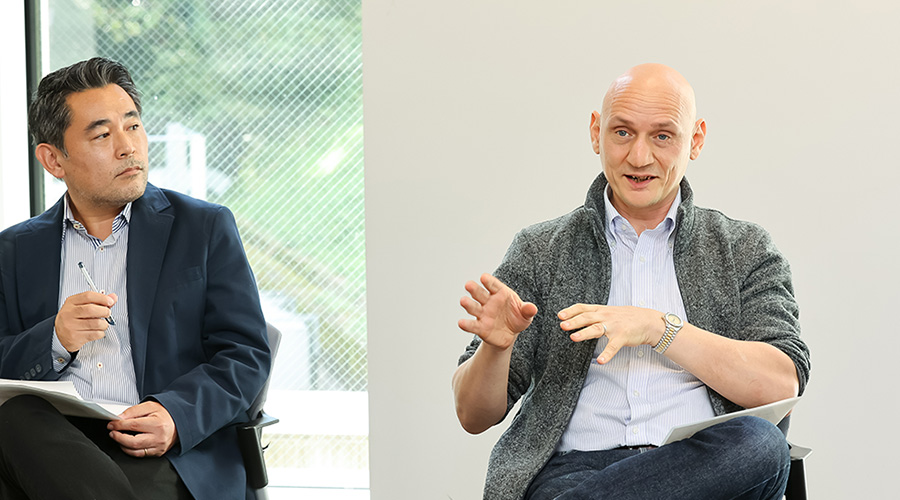
-

Fukumi In the beginning, the faculty had to take the lead because the students didn't have the know-how, but recently, I think the student facilitator (*3) system has started to function.
-

Koga-Browes With the increase in the number of students, time for one-on-one communication has decreased.
-

Fukumi I think it will change again when the makeup of the countries of origin changes. If there are a lot of people from the same country, they tend to gather together.
-

Ataka Indeed. Some discord may arise between those students who value their home country community and those looking for more freedom.
-

Koga-Browes Students who can go outside their own in-groups interact proactively with others regardless of nationality, but when the number of students increases, home country communities start to form. How to squash this trend is an issue for the entire college, I think.
-

Ataka Another point is how effectively the students are taking advantage of the opportunities provided by GS. Since tuition fees are relatively low here and Japan is a safe country, many students use GS as a stepping stone and then advance to graduate schools overseas where they can grow even more. In other words, I think that students are aware that if they go to GS, there is a path for them to follow after they graduate.
-

Koga-Browes It's great that GS is recognized as a place where you can take a step up.
-

Ataka Also, our Japanese students, having been influenced by their international classmates, are doing some interesting things. There was a student who took a leave of absence for a year and went to Myanmar. In Japan, people tend to wonder why you would do such a thing, but I think the good thing about GS is that there are not many limiting factors to what you can do.
-

Fukumi If anything, GS is full of people who are more like students from the older generation of Japan. I also thought that college students should be backpackers, and I actually went to many places by myself as a student. I thought that there weren’t many students like this nowadays, but there have been quite a few at GS. (laughs) There are still students who go to places that make you ask, "Are you really going there?" There are also students who were not planning to go somewhere, but decided to go after hearing about it from their friends, and students who wanted to see the home country of someone they met at GS. It seems to me that GS students are much more active than their counterparts at other schools.
*3: Student facilitators: Older students who help first-year students adjust to campus life. Initially, these activities were undertaken by students on their own accord, but since 1991, Ritsumeikan University has been providing institutional support for student facilitator and mentor activities.
Incorporating the unique features of GS into the university as a whole
In what ways do you think GS will change and evolve going forward?
-

Koga-Browes I don’t think the students need to change, but there are some tweaks we should make to the curriculum. I don’t know if it’s possible, but I would like to be able to assign more homework like they do overseas. Simply put, I wonder if we could reduce the number of courses that students take so we can deepen their learning in each course. I think it would be hard to implement, but I still hope we can do this. I would like to have a curriculum that allows our students to concentrate even more on those areas that interest them.
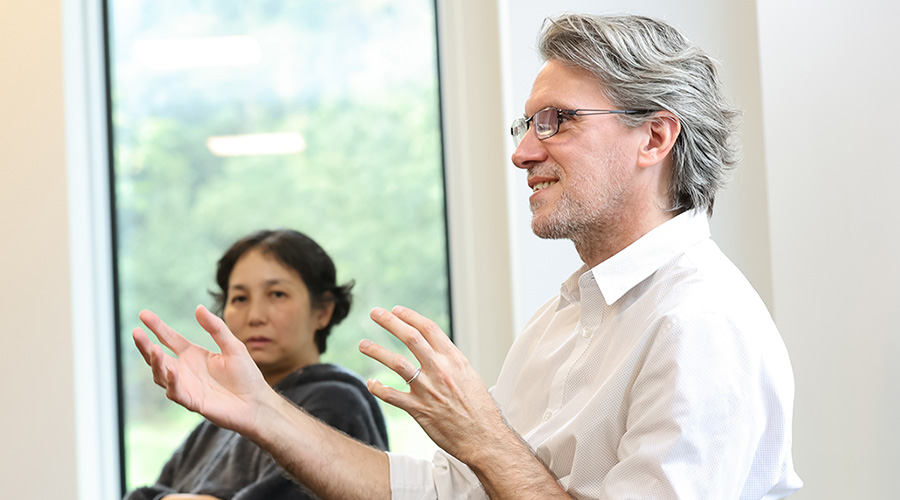
-

Rajkai The emphasis on internationalization and globalization from Japan's point of view should remain unchanged, but I would like to increase the number of classes we offer on various countries. If we can do this, we can achieve global studies in the true sense of the word.
-

Koga-Browes So, you want us to offer more courses?
-

Fukumi It’s the exact opposite direction. (laughs)
-

Rajkai Well, that is something we will need to discuss going forward. (laughs) After all, globalization is something to talk about from the perspective of many different countries. Whether you are a student coming from abroad or a Japanese student, the first thing you need to do is re-discover your own country. There are things that are not taught in educational institutions up to the university level, so you need to reinforce your knowledge about your own country before you start studying other countries. I think that the international society as seen from Japan should continue to be one of the pillars of GS.
-

Fukumi What I often say to my seminar students is that I would not have enjoyed myself if I had joined this major at this university. For example, if you have Japanese nationality and have grown up in Japan, but you are a mix of nationalities, like a Zainichi, or you have never really felt at home in Japan, I think you will find that there are many different people here at GS. People who have Korean or Chinese nationality but grew up in other countries for more than ten years are different from native-born Koreans or Chinese. Manners are generally the same no matter what your status is, but commonly accepted practices may differ, or you may find that your way of thinking, which you thought was unusual, is surprisingly normal in other parts of the world. This is a good thing if it makes you feel that university is enjoyable, and I think it would be great if we could have more learning opportunities where we are exposed to the various influences of other people. So, with diversity, multiracialism, and more recently transgenderism, I'd be happy if all kinds of people could come and make GS a place where everyone can enjoy their studies.
-

Ataka Come to think of it, there wasn't as much bias in terms of nationality as we had initially feared. Before GS was established, it was thought that there would be a lot of students from East Asia, especially Northeast Asia, but when we opened the doors, we found that students came from all continents.
-

Fukumi What’s more, the number of nationalities is on the rise.
-

Ataka That's why it's fun! (laughs) I hope that GS will continue to be a place where it is normal to have a variety of people, and where there are many different sets of commonly accepted practices. I would also like to see this atmosphere that is unique to GS spread to other colleges within the university; I think the effect would be positive if it spread to the rest of the university. I would like to see GS not be treated as something special, but rather as something normal and mainstream. I also want students to be exposed to the significance of studying international relations here. The curriculum is designed to teach students how to look at the world from a Japanese or East Asian perspective, but if we could constantly review what are considered commonly accepted practices while remaining aware of the views of various countries, it would be useful not only for our research, but also for our students when they head out into the world. I think GS will continue to be interesting if the classes and curriculum can be designed in such a way.
-

Rajkai We often hear the term "global human resources," but it is mainly used in a narrow sense, such as Englishization. However, at GS, we teach our students to look at things "in" English. In other words, one of the main things we are aiming to do is to internationalize their mindsets. For Japanese students in particular, I would like them to acquire the ability to correctly understand what is unique about their own country, what makes Japan different from other countries, and what Japan has in common with other countries. I want them to develop into truly global human resources who can not only speak English, but also acquire the skills I just mentioned.
